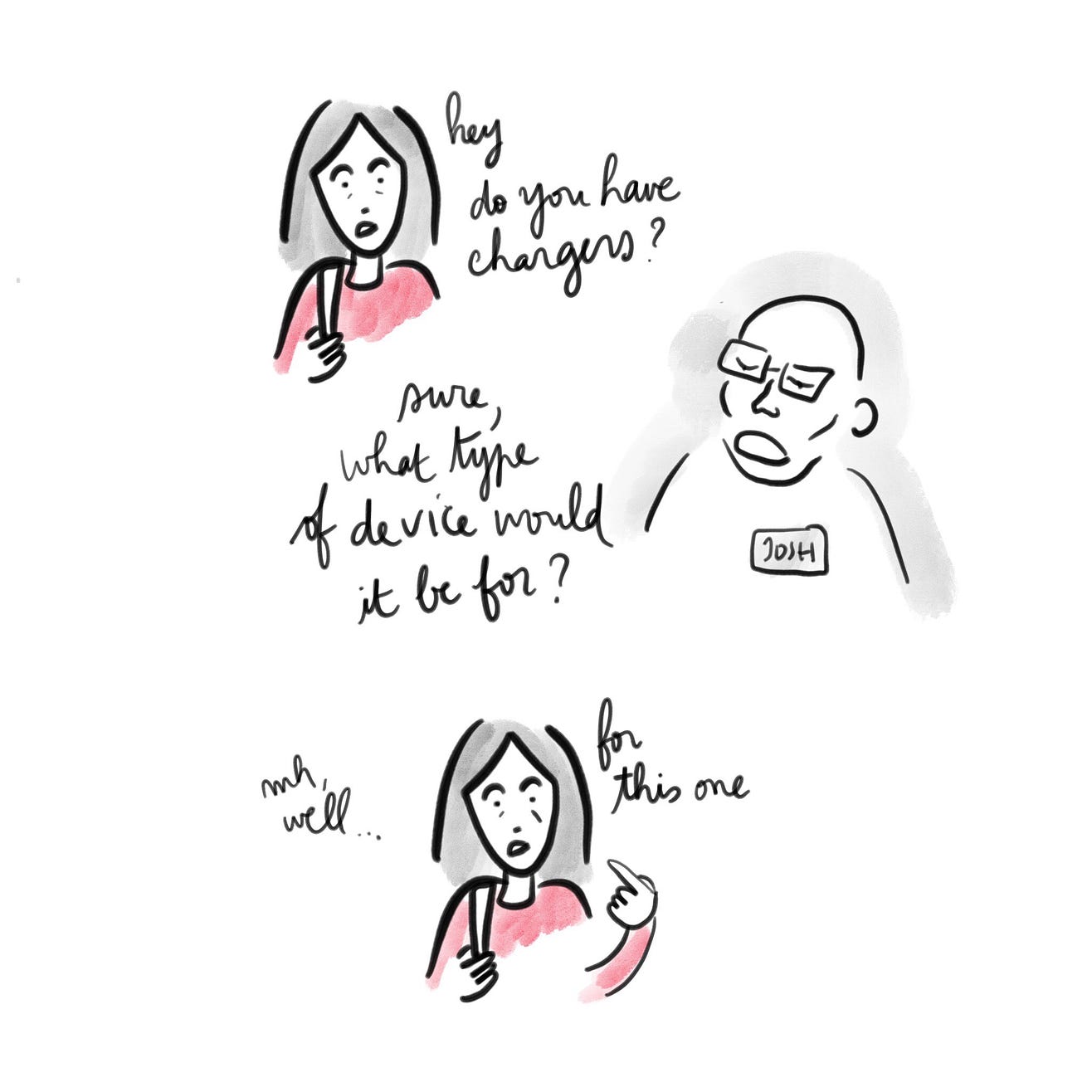I had a conversation recently with a friend about how much to charge for a Zoom event. The question came up about whether to charge less because the event wasn’t held in person. The logic being that ticket prices were lower and there was no travel time involved.
The line of thinking seemed sound enough – if the event is making less money, surely as a speaker, I should charge less, too. Except, that’s not the best way to measure your value. Whether an event is held virtually or in-person doesn’t have any bearing on the price you, as the speaker, can charge. To understand why this is, first you need to understand the real meaning of value.
Scroll through Freelance Instagram or Twitter and it won’t take long until you happen upon a bubble-texted aphorism imploring you to “Know your worth!” Cool advice, except knowing my worth is a terribly daunting – if not existentially painful – task. It puts the weight of thousands of years of the patriarchy, deep-seated shame and market price economics squarely on my shoulders. Instead, I’ve started taking the more emotionless approach of working out my value.
Value and worth sound like synonyms, but they’re not. Where worth is the price the market is willing to pay for something, value is what makes something desirable. Of course, both play a role in determining the rate you end up getting paid for a speaking gig (or anything else), but focusing on your value takes the sting out of it.
The futurist, Max Borders, wrote how time, perspective and context all influence our individual perceptions of value. He used the example of a man doing his laundry in a hurry who finds himself short a quarter. The man’s in a real bind as he needs to dry his trousers for a dinner that night when another guy comes in with a big bag of quarters. The first man asks if he can buy a quarter off him for a dollar. “At that time, in that context, from my perspective, his quarter was worth at least a dollar to me,” Borders writes.
I take a lot of comfort from this story because to me it highlights the subjective nature of value. Not even a quarter – a unit of money! – always holds the same value to two different people. I find this concept liberating because it means that how much someone wants to pay for my work isn’t about me at all. It’s about the time, context and perspective of the other person – subjective things I can’t do a whole lot about. I could’ve walked into that laundry room on a different day, trying to sell a quarter for a dollar and been laughed at. But if I happen upon a panicked man with sopping wet trousers, I’m up 75 cents.
Bringing these lofty ideas down to the real world, your value as a freelancer is made up of your skills, expertise and creativity. How much you can charge for those things depends on how desirable they are to your buyer. Let’s take the Zoom talk as an example. What’s my value as a speaker at a Zoom event? Well, to start with I’ve been asked to deliver this talk because I’m in possession of something valuable to the event organisers and the audience will buy tickets because of it. That value is agnostic of whether or not I have to travel to deliver the talk. If anything, my ability to deliver a compelling talk over Zoom, which arguably requires even more energy than in-person, holds its own unique value.
The key here is understanding that costs – both yours and the clients’ – don’t factor into the value equation. Let’s reverse the example to make that clearer. Let’s say you as the speaker are based in London, paying hefty rent for your live/work loft space. If you base how much you charge the event organiser for your talk on your costs, you’d factor in your high rent and charge a premium. Well, what happens if you move out of the metropolis and your rent drops – do you charge less? Absolutely not.
The pandemic has blessed companies with new and innovative ways to exploit independent workers. Subjective notions of value may be shifting right now, but don’t let that trick you into thinking that your work is now worth less by default. Understand your value; know your worth and when in doubt, charge more for a Zoom talk.


